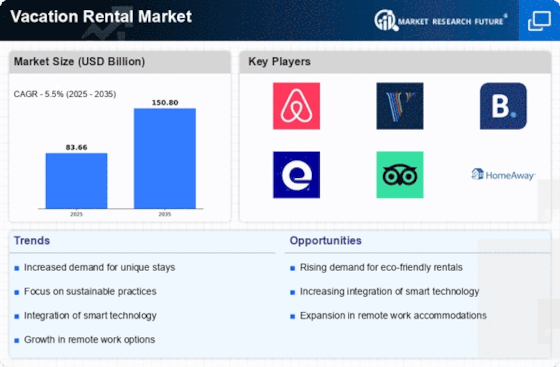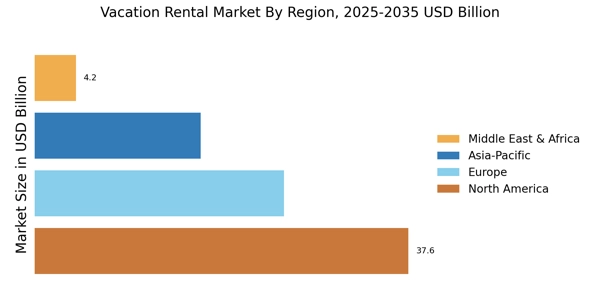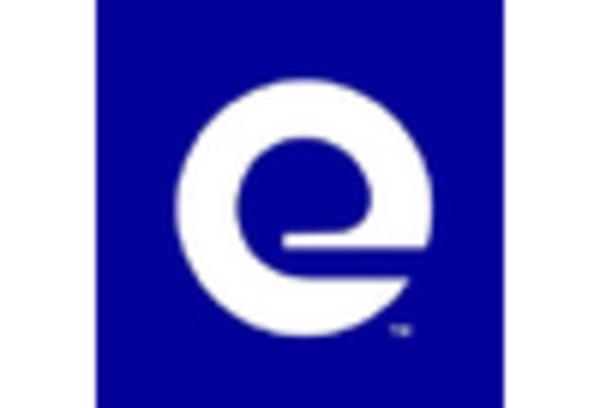The Vacation Rental Market is currently characterized by a dynamic competitive landscape, driven by evolving consumer preferences and technological advancements. Major players such as Airbnb (US), Vrbo (US), and Booking.com (NL) are at the forefront, each adopting distinct strategies to enhance their market positioning. Airbnb (US) continues to innovate with its focus on unique stays and experiences, while Vrbo (US) emphasizes family-oriented vacation rentals, catering to a specific demographic. Booking.com (NL), on the other hand, leverages its extensive global reach and diverse accommodation options to attract a wide range of travelers. Collectively, these strategies contribute to a competitive environment that is increasingly focused on personalization and customer experience.
In terms of business tactics, companies are increasingly localizing their offerings to better meet regional demands, optimizing their supply chains to enhance efficiency. The market appears moderately fragmented, with a mix of established players and emerging platforms vying for market share. This fragmentation allows for a variety of choices for consumers, while also intensifying competition among key players who are striving to differentiate themselves through unique value propositions.
In August 2025, Airbnb (US) announced a partnership with local tourism boards to promote sustainable travel options, reflecting a growing trend towards eco-consciousness among travelers. This strategic move not only enhances Airbnb's brand image but also aligns with the increasing consumer demand for sustainable practices in the travel industry. By collaborating with local entities, Airbnb (US) is likely to strengthen its community ties and attract environmentally aware travelers.
In September 2025, Vrbo (US) launched a new feature that allows users to book vacation rentals with flexible cancellation policies, addressing a significant consumer concern in the current market. This initiative is strategically important as it enhances customer confidence and encourages bookings, particularly among families who may be hesitant to commit to travel plans. By prioritizing flexibility, Vrbo (US) positions itself as a customer-centric platform, potentially increasing its market share in a competitive landscape.
In October 2025, Booking.com (NL) unveiled an AI-driven recommendation engine designed to personalize the user experience based on individual preferences and past behaviors. This technological advancement signifies a shift towards data-driven decision-making in the vacation rental sector. By harnessing AI, Booking.com (NL) aims to enhance customer engagement and streamline the booking process, which could lead to increased customer loyalty and repeat business.
As of October 2025, the competitive trends in the Vacation Rental Market are increasingly defined by digitalization, sustainability, and the integration of advanced technologies such as AI. Strategic alliances, like those seen with Airbnb (US) and local tourism boards, are shaping the landscape by fostering collaboration and enhancing service offerings. Looking ahead, competitive differentiation is likely to evolve from traditional price-based competition to a focus on innovation, technology integration, and supply chain reliability, as companies strive to meet the changing demands of consumers.


















Leave a Comment